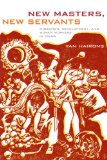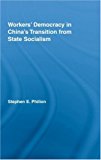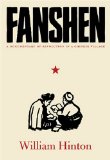left round-up on june 4th
Well, it’s June 11th, and as you can see, news stories on 6.4 started slowing down some time ago:
Perfect time to do a round-up of left websites’ take on the 20th anniversary of 6.4!
First, John Chan at the World Socialist Web Site continues his excellent mix of news summary and analysis in his overview piece “Origins and consequences of the 1989 Tiananmen Square massacre” (Part I, Part II, Part III)
There is some boilerplate in the articles, but the articles’ virtues outweigh any sins. Chan puts things in perspective in ways that no other journalist has done. Most controversial is his portrayal of the students, who are portrayed in a tragic role, cynically manipulated by larger forces:
To legitimise market reform, Deng sought to cultivate support in intellectual and academic circles, and chose Hu Yaobang as CCP general secretary for that purpose. Western bourgeois social and philosophical thought was encouraged on Chinese campuses, including currents that openly blamed classical Marxism for the crimes of Mao and the CCP’s dictatorial rule. Many students, hostile to the decades-long bureaucratic controls over youth activities, were attracted by the anti-establishment flavour of these newly available works.
Unfortunately for the futures of the students, their antiestablishmentarianism extended to the leadership under Deng. This was not a big deal for the student movements of 1986 (easily dispatched), but Chan argues 1989 was an entirely different story for China’s leadership: rural reforms were stalled, and the corruption, inflation, and insecurity for workers following the urban economic reforms of the mid-1980s led to potential unrest. And while the leadership of the 1989 movement remained in students’ hands, the actions of workers and residents in Beijing in May and June of 1989 were crucial in supporting the protests.
I recommend the piece.
Next, Counterpunch delivers a glancing blow in The End of Idealism in China?, in which Behzad Yaghmaian, after some journalistic touring around young people in China, laments that kids in China just aren’t the way they used to be:
Today, however, prejudice, conflict of interest, and, in cases, outright hostility, separate students from the new Chinese working class, millions of underpaid internal migrants working tirelessly, and under severely substandard conditions, in the country’s export-processing factories. The alliance that once threatened the power of the Communist Party of China is now broken.
Whoa, wait a minute? Alliance? What alliance? And does anyone actually think the CPC was in trouble because of the protests? Maybe one faction, but the party itself? Come on. On the issue of student-worker ‘alliances’, John Chan dug out a convincing quote from Zhao Ziyang from Prisoner of the State: The Secret Journal of Premier Zhao Ziyang that shows that the leadership of the students avoided such an alliance:
During the demonstrations, students raised many slogans and demands, but the problem of inflation was conspicuously missing, though inflation was a hot topic that could easily have resonated with and ignited all of society… In hindsight, it’s obvious that the reason the students did not raise the issue of inflation was that they knew that this issue was related to the reform program, and if pointedly raised to mobilise the masses, it could have turned out to obstruct the reform process. [p. 34]
Now the students may have had good strategic reasons for doing so - avoid getting crushed - but this casts serious doubt on the alliance thesis. Which is precisely the point Andy Newman makes in the next article: Socialist Unity’s Twenty Years on from Tiananmen Square Massacre:
…the economic reforms were experienced as a direct attack on the working class…so when the pro-democracy protests on 17th April culminated in defiance to the government, and Beijing students occupying Tiananmen Square, this became the catalyst for a huge explosion of working class protest….the June 4th Movement expressed polar opposites of political objectives, and the working class were demanding the cessation of the process [i.e. economic reform] that the students were arguing should accelerate.
Let’s take this one step at a time. First, enterprises were starting to transfer and layoff workers in late 1987, but this was still pretty limited in scope compared to what was awaiting workers in the 90s. About 1 million workers were affected by ‘labor rationalization’ of some kind by 1989. A large number, but remember the denominator of urban Chinese workers is huge. Economic disputes were more common than in the past, but these never became important issues in workers’ participation in 6.4. More important is that workers’ wages fell in 1988 after you take inflation into consideration, coming after years of rapid growth earlier in the 1980s. When viewed from the perspective of the very brutal direct attack on workers that was awaiting the Chinese working class in the 90s, the itty-bitty reforms of the late 80s are more like slaps across the wrist. not a direct attack.
Next, I don’t see any evidence for an explosion of working-class protest in May. There was an increase in worker participation, but it was tiny compared to the numbers of students protesting. The few workers’ organizations that did emerge (gongzilian) never developed the capacity to organize on a large scale. In terms of the ‘polar-opposite’ idea, there is evidence that workers were considerably less supportive of Deng’s economic reforms, and didn’t put much stock in supporting Zhao Ziyang, but the workers had lots of other common ground with students (anti-corruption, etc.).
Last is Twenty years after Tiananmen Square by Dennis Kosuth in the Socialist Worker. It’s not bad, but it’s there considerable boilerplate, and some glaring errors, like:
Hu Yaobang, the former general secretary of the CCP, died on April 15, 1989. Two years prior, he had been driven from his position in the party in disgrace because he was seen as challenging corruption.
Try harder Socialist Worker!
Anyway, glad to see so much attention paid to participants other than the students in these articles. Not that they don’t deserve it, just that most of the English-language media focuses exclusively on them while leaving out other important actors. As Jeffrey Wassterstrom points out in Illuminating and Misleading Takes on China 20 Years Since Tiananmen.
[note: a number of groups and websites reprinted old articles to commemorate 6.4. didn't include those. leave a comment if I missed anything]





Good overview. I was looking forward to this but didn’t know you actually posted it until now. The graph is especially impressive (is that way they teach you in grade school? I don’t even know how to do arithmetic on Excel yet…) But I would like to see an overview or at least bibliography of left perspectives on 6.4 in general.
Leave your response!